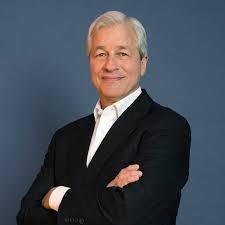 BrokerHive
BrokerHivePersonal experience
James "Jamie" Dimon was born on March 13, 1956 in a Greek family in New York City, the youngest of three brothers. His father, Theodore, was a Greek banker who worked at First Boston Bank, and the financial atmosphere had a profound impact on him.
Dimon showed outstanding leadership and analytical skills from an early age. He obtained a double degree in psychology and economics from Tufts University, and then went to Harvard Business School for further studies, where he received an MBA with honors in 1982. While at Harvard, he was recruited by Sandy Weill to join the American Express business, beginning his decades-long collaboration with Weill.
In 1998, the two parted ways after the merger of Citigroup and Dimon left. In 2000, he joined the troubled First Chicago Bank (Bank One) and successfully turned it around three years later. In 2004, JPMorgan Chase acquired Bank One, and Dimon became the president of JPMorgan Chase and was promoted to CEO a year later.
Main achievements
Since taking the helm of JPMorgan in 2005, Dimon has built it into one of the world's most robust and influential banks.
During the 2008 financial crisis, JPMorgan Chase successfully acquired Bear Stearns and Washington Mutual under his leadership, acquiring huge assets at very low costs. At the same time, the bank remained profitable during the crisis and was regarded as the "bastion of Wall Street."
Under his leadership, JPMorgan Chase's market value has always ranked first in the global banking industry, with assets exceeding US$4 trillion, covering multiple areas including investment banking, asset management, retail banking, credit cards, etc.
Even during the "London Whale" trading scandal, Dimon still demonstrated efficient crisis management capabilities and maintained investor confidence.
Management Essence
"In the financial world, reputation is everything. You have to make sure your actions are always right." - Dimon is known for his high attention to moral risk and compliance culture .
"I believe more in numbers and cash flow than in models and forecasts." - Dimon has always preferred a pragmatic financial management philosophy , emphasizing asset quality and customer base as the core of the business.
“Only when the storm comes can you see which ship is the strongest.” - His performance during the financial crisis reflects the importance of risk control, capital adequacy and flexible decision-making .
He is widely regarded as one of the most authoritative bankers on Wall Street and one of the few CEOs who can win the respect of investors, regulators and customers. His annual letter to shareholders is likened to the "State of the Union" in the financial industry and is widely cited by professionals.
